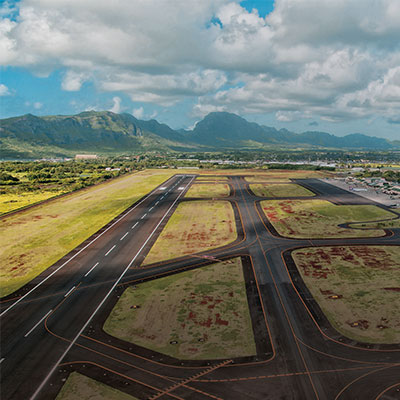Aviation contributes only about 2 percent of all human-produced carbon dioxide emissions – but that figure is set to rise, given that demand for air transport is expected to double by 2035. To date, the industry has focused mainly on reducing overall fuel usage and improving fuel efficiency, such as through new plane technology and operational improvements. But further reducing greenhouse gas emissions – particularly in the face of new regulations set to come online in the next few years – may require the industry to take the next step: embracing renewable jet fuels.
To see the full version of this article, please open the pdf below.
THE GREENING OF AVIATION
Estimated aviation emissions to be offset, and the cost to achieve carbon-neutral growth from 2020
Note: The impact on aviation of offsetting costs for a global MBM scheme are expected to be much lower than fuel price volatility. The estimated offsetting cost for 2030 equals an extra US$2.6 in jet fuel price per barrel, versus a standard deviation in jet fuel prices annually of nearly US$40 per barrel over the past decade.
Source: ICAO, Committee on Aviation Environmental Protection (CEAP)
About Authors
Bob Orr is a Houston-based partner in Oliver Wyman’s Energy practice, Eric Nelsen is a Chicago-based partner in Oliver Wyman’s Energy practice, Geoff Murray is a Chicago-based partner in Oliver Wyman’s Aviation practice, and Bjoern Maul is a Zurich-based partner in Oliver Wyman’s Aviation practice.
This article first appeared in Forbes.


